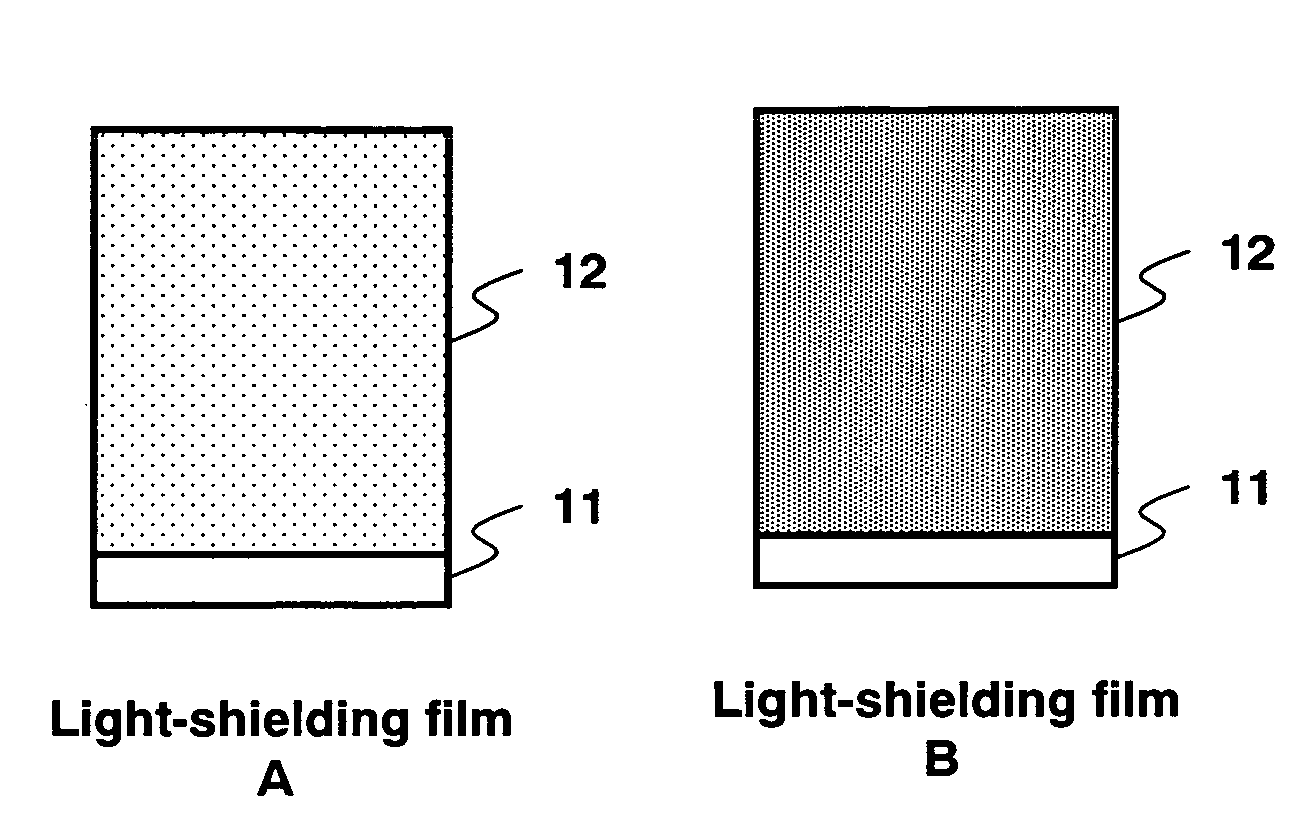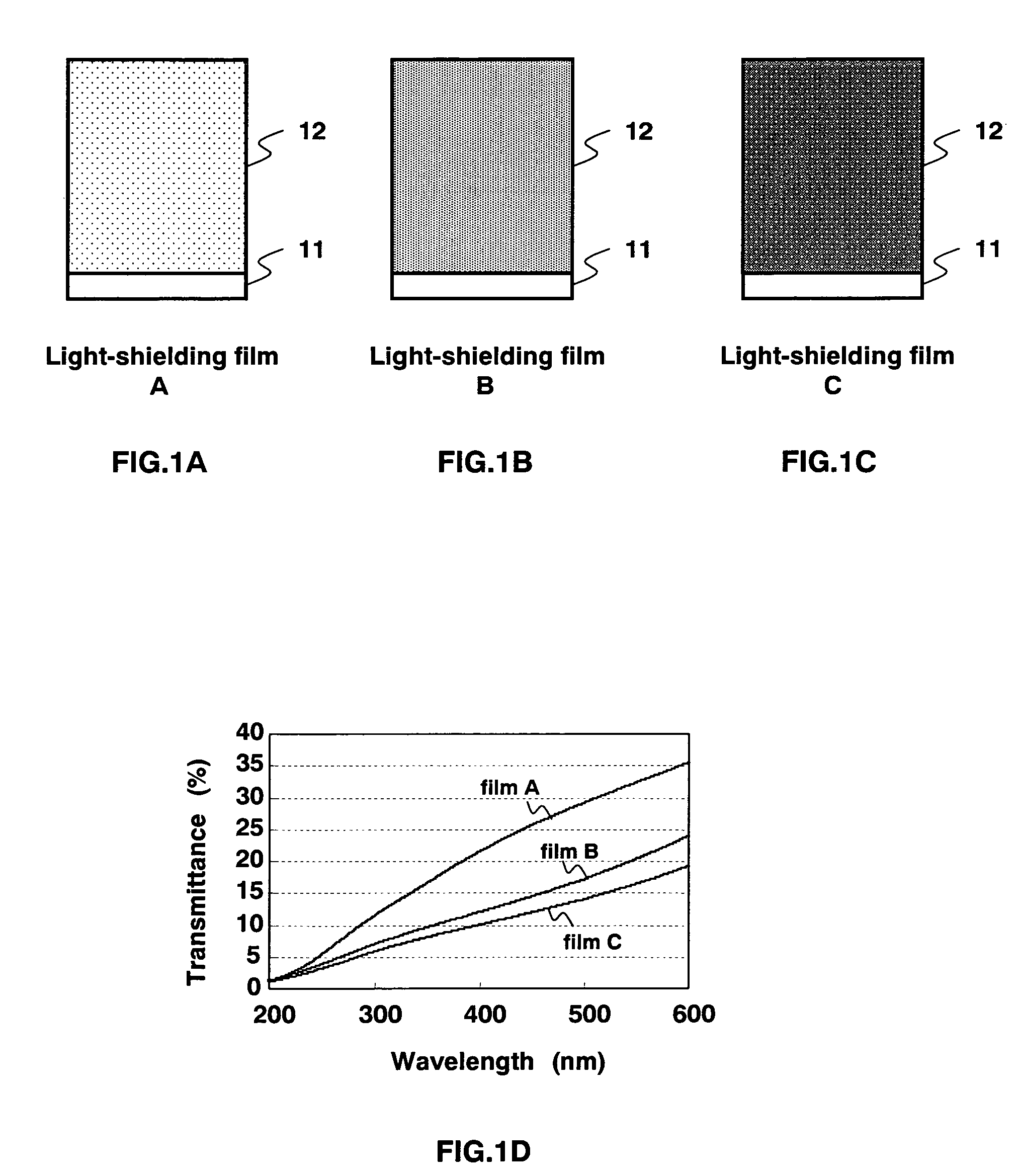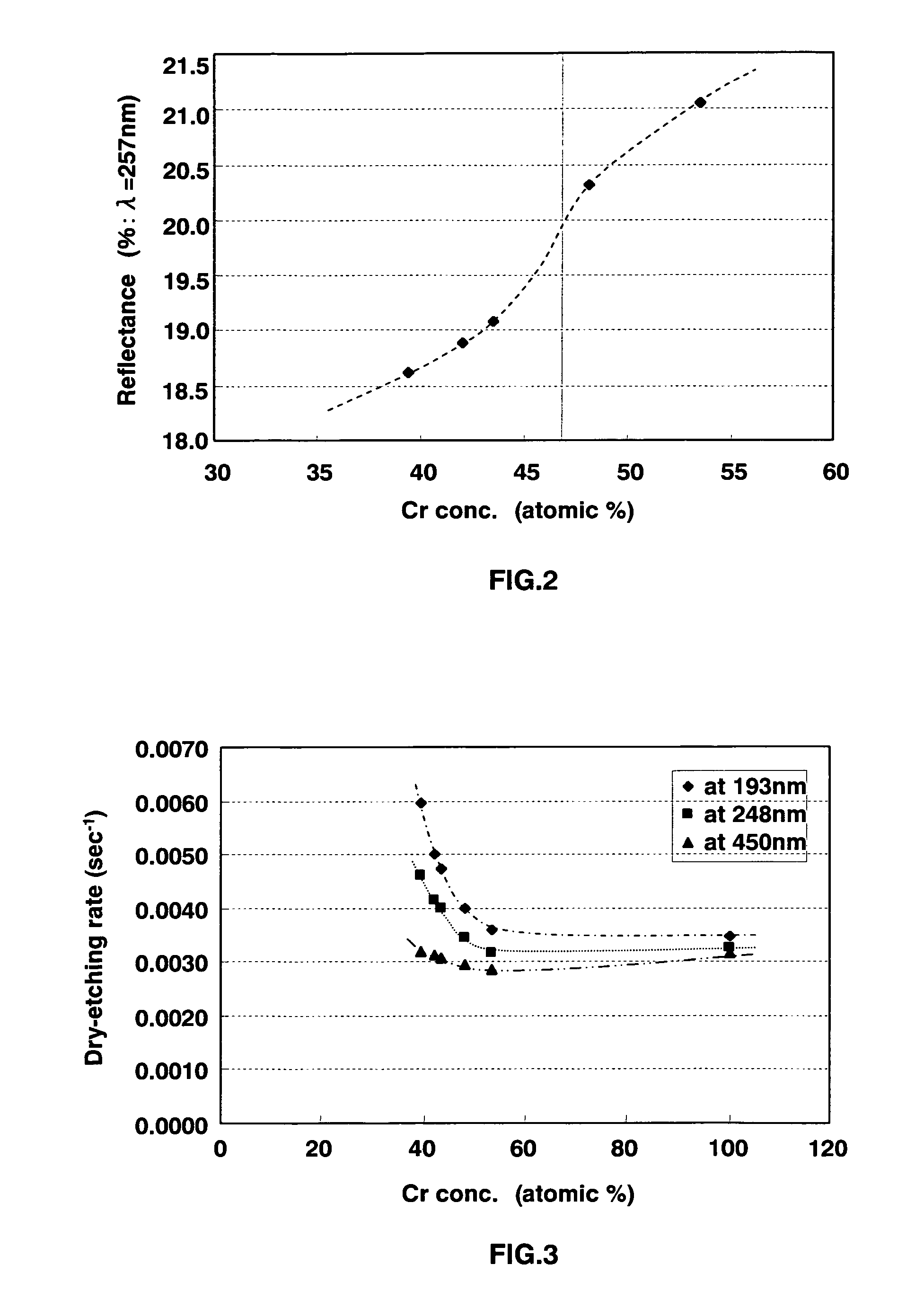Photomask blank, photomask and fabrication method thereof
a technology of photomask and resist film, which is applied in the direction of photomechanical equipment, originals for photomechanical treatment, instruments, etc., can solve the problems of reducing the precision of the transfer of photomask pattern onto the resist film, affecting the effect of etching rate, and affecting the quality of photomasks. , to achieve the effect of reducing the damage occurring during etching, reducing the amount of metal, and high etching ra
- Summary
- Abstract
- Description
- Claims
- Application Information
AI Technical Summary
Benefits of technology
Problems solved by technology
Method used
Image
Examples
example 1
Light-shielding Film of Photomask Blank According to Present Invention
[0067]In order to enable reduction of the thickness of a photoresist used as a mask for forming a photomask pattern, damage to the photo resist during etching of the light-shielding film that is patterned using the photoresist mask has to be reduced. To this end, it is essential to reduce the time required for etching of the light-shielding film by reducing the physical thickness of the light-shielding film to be patterned and / or by increasing the etching rate of the light-shielding film.
[0068]Investigations by the inventors have proven that the etching rate of the light-shielding film can be achieved by reducing the metal percentage content of the film. This means that high-rate etching can be achieved by designing a chromium-based light-shielding film, which is commonly used, to reduce the chromium content (percentage content) of the film.
[0069]For example, in the case where a light-shielding film of a chromium ...
example 2
Basic Structure of Photomask Blank
[0120]FIG. 9A is a schematic cross-sectional view for illustrating an exemplary structure of a photomask blank according to the present invention, in which a light-shielding film 12 is formed on one principal plane of a transparent substrate 11 made of quartz or the like that serves as a photomask substrate. The light-shielding film 12 has the layered structure described above with regard to the example 1 and can serve not only as a “light-shielding film” but also as an antireflection film. The film of such a composition is used because it has excellent characteristics including dry etching characteristics, conductivity, and chemical resistance.
[0121]In the case where the photomask blank according to the present invention is designed for fabrication of a mask for ArF exposure, the thickness and composition of the light-shielding film 12 are selected so that the optical density OD of the light-shielding film 12 for light having a wavelength of 193 nm...
example 3
Photomask Blank, and First Example of Patterning Process
[0131]FIG. 10 shows an exemplary arrangement of a film deposition apparatus (sputtering apparatus) used for fabricating a photomask blank according to the present invention, and FIGS. 11A to 11D are diagrams for illustrating an exemplary process of patterning the photomask blank.
[0132]In FIG. 10, reference numeral 11 denotes a transparent substrate, which is a 6-inch rectangular quartz substrate. Typically, the surface and end faces of the quartz substrate are finely polished. Reference numeral 101 denotes a chamber, reference numeral 102a denotes a first target, reference numeral 102b denotes a second target, reference numeral 103 denotes a sputtering gas inlet, reference numeral 104 denotes a gas outlet, reference numeral 105 denotes a substrate turntable, and reference numerals 106a and 106b denote power supplies that apply a bias to the first and second targets, respectively.
[0133]The first target 102a and the second target...
PUM
| Property | Measurement | Unit |
|---|---|---|
| thickness | aaaaa | aaaaa |
| thickness | aaaaa | aaaaa |
| wavelength | aaaaa | aaaaa |
Abstract
Description
Claims
Application Information
 Login to View More
Login to View More - R&D
- Intellectual Property
- Life Sciences
- Materials
- Tech Scout
- Unparalleled Data Quality
- Higher Quality Content
- 60% Fewer Hallucinations
Browse by: Latest US Patents, China's latest patents, Technical Efficacy Thesaurus, Application Domain, Technology Topic, Popular Technical Reports.
© 2025 PatSnap. All rights reserved.Legal|Privacy policy|Modern Slavery Act Transparency Statement|Sitemap|About US| Contact US: help@patsnap.com



